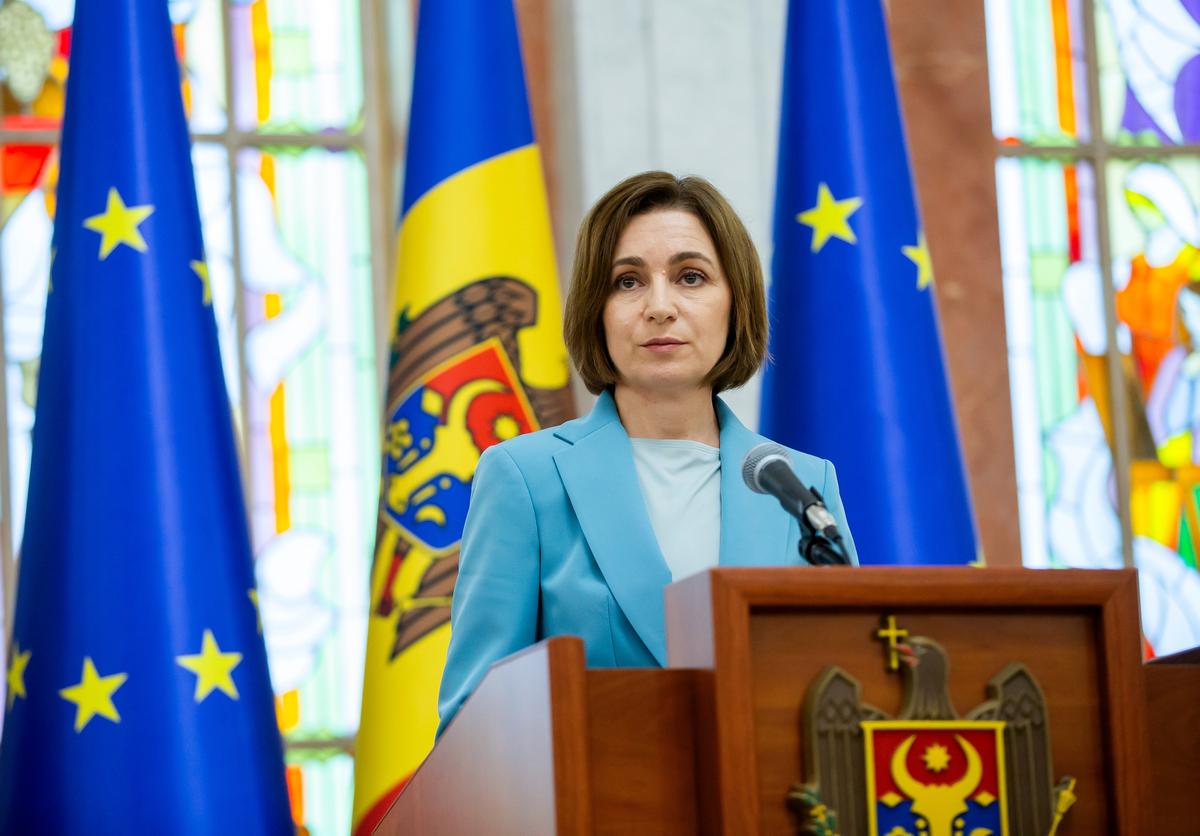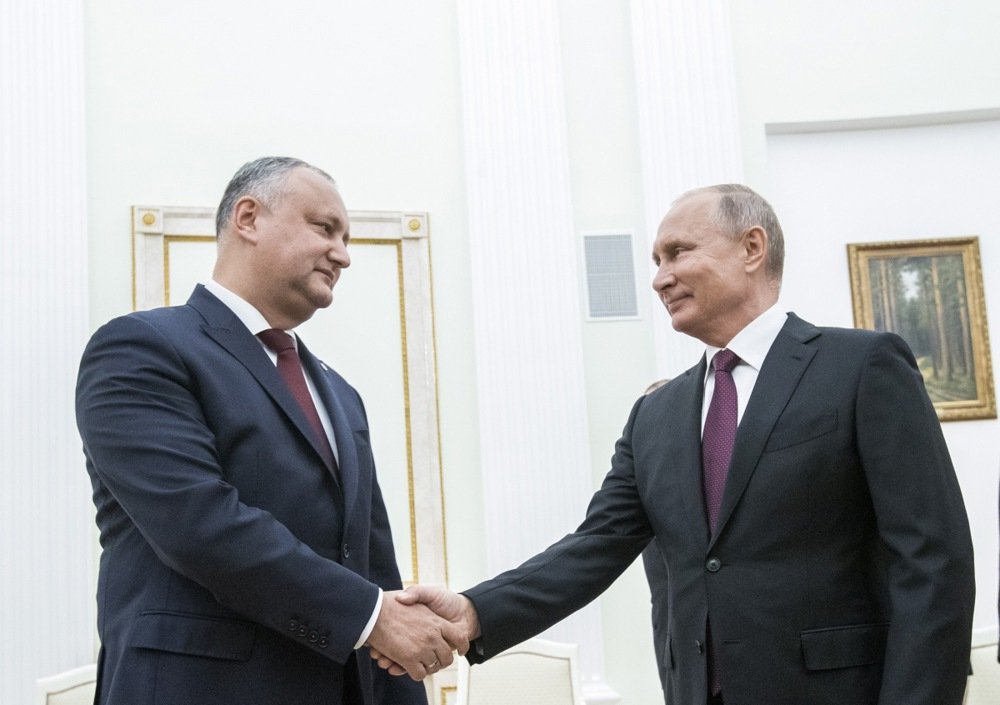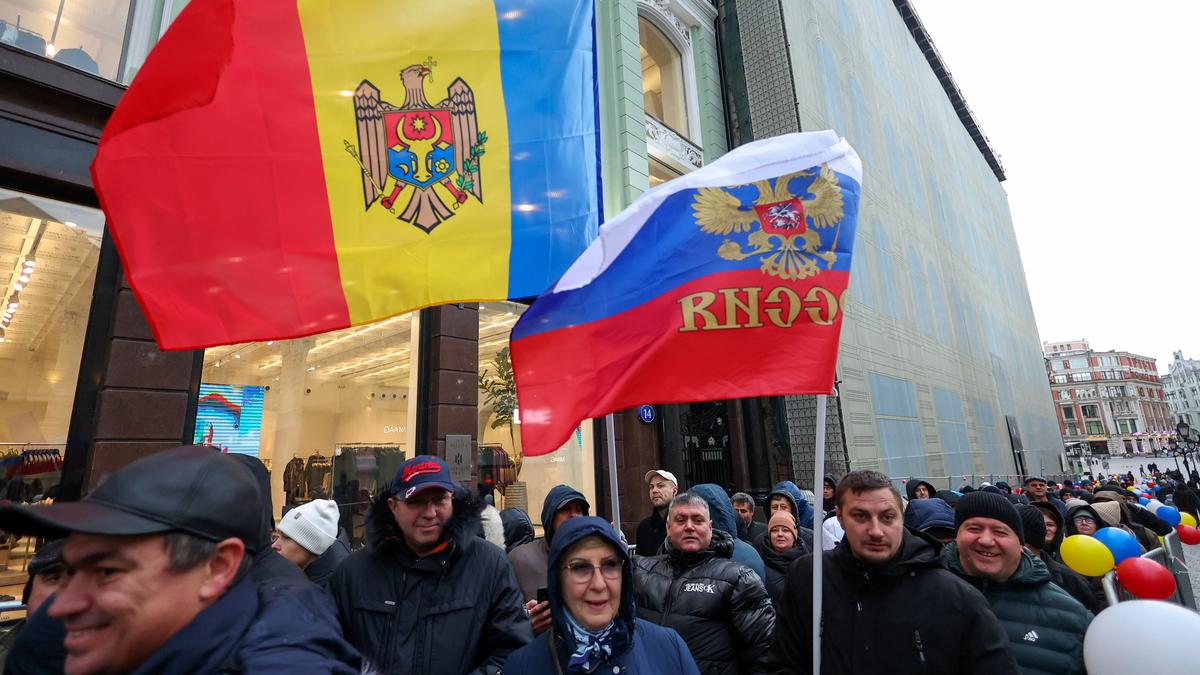Parliamentary elections will be held in Moldova on 28 September. While this may seem like a minor event for the rest of Europe, the implications for the rest of the continent’s security and stability could be profound.

Amy Eaglestone
Doctoral candidate at the University of Birmingham and lecturer at Leiden University
Moldova plays a vital role in supporting Ukraine. Even though it is among Europe’s poorest countries, it absorbed over 1.5 million Ukrainian refugees at one point during the war and is now home to more than 100,000.
It also helps to ship grain to and from Ukraine through its Danube ports, offering an alternative route and alleviating pressure on Ukraine’s Black Sea routes which are often cut off by Russian blockades.
Should Moldova pivot towards Moscow, Ukraine’s support structure will be weakened, undermining the EU’s eastern resilience. This would increase the risk of military attacks around the EU’s borders, with Romania looking particularly threatened, but attacks on Poland and the Baltic states not out of the question.
European leaders signalled awareness of just what could be at risk, with the French president, Emmanuel Macron, along with the chancellor of Germany, Friedrich Merz, and the Polish prime minister, Donald Tusk, travelling to Moldova to talk about unity and commitment to the country at the end of August.
Vladimir Putin has previously suggested he planned to occupy the whole of Ukraine, bringing his forces even closer to the rest of Europe. Footage released by Russia’s Defence Ministry on 30 August suggested a plan to seize Ukraine’s Odesa and Mykolayiv regions along the Black Sea.
Meanwhile, a pro-Russian Moldovan government could offer an eastern base for attacks — or even to open a new front. Another factor is that Russia already has around 1,500 troops stationed in Transnistria, a pro-Russian breakaway region of Moldova on the Ukraine border, which demanded independence from Chisinau in 2006, after holding a referendum on the issue that was not recognised by Moldova or the international community.
This raises the stakes for the majority of nearby states, many of which are NATO members with collective defence commitments under the alliance’s Article 5, which means they should come to the aid of a fellow NATO member if it were to be attacked.

President of Moldova Maia Sandu gives a press conference after a meeting of the country’s Supreme Security Council in Chisinau, Moldova, 30 July 2025. Photo: EPA/DUMITRU DORU
Pro-EU Moldovan President Maia Sandu’s Party of Action and Solidarity (PAS) currently holds 63 seats in the 101-seat parliament. Since the party came to office in 2021 it has moved closer to the EU, applying for membership in 2021 after Russia’s full-scale invasion of Ukraine, and being awarded candidacy status in June 2022.
In June 2024, accession negotiations were formally opened and, in July this year, the first EU-Moldova summit was held. The population still broadly supports EU membership, but PAS is projected to vote share, although it is still leading in the polls. This dip in support from an initial 52.8% in the previous parliamentary elections in July 2021 to 25.8% in August 2025 stems from domestic dissatisfaction with the party and lack of progress on its policy platform.
In its election campaign PAS promised to fight corruption, make the public sector more efficient, and improve the economy, but they have not made significant progress on any of these plans. PAS has presented its progress on EU accession as a key achievement. But without seeing concrete benefits, the electorate has become increasingly alienated from the process.
Moldova has become a testing ground for Russian cyberattacks and large-scale disinformation campaigns.
The PAS government has been in crisis mode for much of its time in power, dealing with a variety of threats created by Russia such as an ongoing energy crisis, raising gas prices and eventually cutting off supplies and a significant loss of exports to Russia and Ukraine has also contributed to a stagnant economy.
The most likely election result is that PAS will be forced into a coalition with one or more of the pro-Russian opposition parties, groups that advocate distancing Moldova from Europe. PAS has dominated the pro-EU political space, but the recently established pro-European Alternative Bloc is projected to gain enough votes to overcome the 5% threshold to enter parliament.
While PAS might still gain the most votes, the Patriotic Bloc of Communists, a pro-Russia group led by former president Igor Dodon, is currently expected to be the second-biggest political grouping. This brings together a number of parties including the Party of Socialists, Party of Communists, the Heart of Moldova and Future of Moldova parties.

Igor Dodon, then president of Moldova, and Vladimir Putin meet at the Kremlin in Moscow, Russia, 31 October 2018. Photo: EPA/DUMITRU DORU
Dodon is currently facing charges of using corrupt practices to control decision making during his presidential term, and allowing state resources to be embezzled on a large scale. The US Treasury has also alleged that he was involved in systemic corruption in conjunction with Russia. Court proceedings are ongoing. Dodon denies all charges, and has complained to the European Court of Human Rights that he is facing an unfair trial.
Moldova has become a testing ground for Russian cyberattacks and large-scale disinformation campaigns, as well as a target of Russian political interference, which was evident in the presidential elections and EU referendum in 2024, where attempts at manipulation and foreign influence were widely documented.
The current Moldovan government and the EU both expect similar, if not more, interference from Russia in the upcoming election, which comes at a decisive moment, not only for Moldova’s future but for the rest of Europe. Other countries need to pay attention to what is happening, and any interference in how the election is carried out.
This article was first published by The Conversation. Views expressed in opinion pieces do not necessarily reflect the position of Novaya Gazeta Europe.
Join us in rebuilding Novaya Gazeta Europe
The Russian government has banned independent media. We were forced to leave our country in order to keep doing our job, telling our readers about what is going on Russia, Ukraine and Europe.
We will continue fighting against warfare and dictatorship. We believe that freedom of speech is the most efficient antidote against tyranny. Support us financially to help us fight for peace and freedom.
By clicking the Support button, you agree to the processing of your personal data.
To cancel a regular donation, please write to [email protected]

